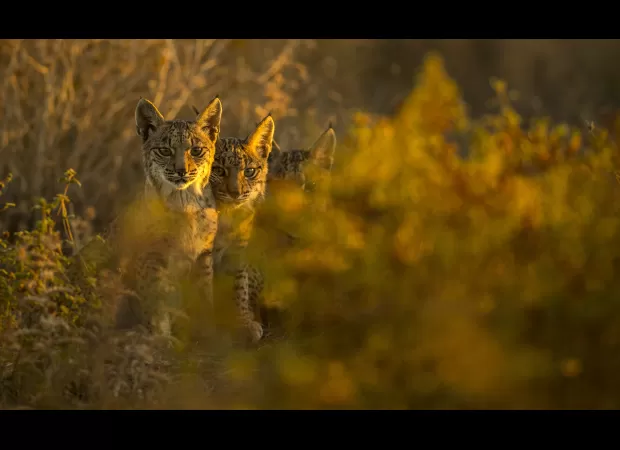Protecting even a tiny amount of land on Earth could stop a catastrophic loss of species.
Researchers have identified key areas to save in order to prevent the planet's sixth mass extinction, according to conservationists.

The Earth is currently facing a major crisis, as conservationists have labeled it the "sixth great extinction of life." This alarming situation has prompted a team of international researchers to take action and identify the specific locations that need to be saved in order to prevent further damage.
According to these experts, focusing on just 1.22 per cent of the Earth's land mass could make a significant impact in preserving rare and threatened species. To determine the most crucial areas, the researchers utilized biodiversity data to map out the Earth's land mass and identify regions where conservation efforts are lacking, but large numbers of rare and threatened species reside.
Lead author of the study, Dr. Eric Dinerstein, explained, "Most species on Earth are rare, meaning they have very limited ranges or are found in low densities. This rarity is highly concentrated, and our study found that protecting just 1.2 per cent of the Earth's surface could prevent the sixth great extinction of life on Earth."
Fortunately, efforts to protect these vital areas are already underway, with an additional 1.2 million square kilometers of land being safeguarded since 2018. However, of this protected land, only 0.11 million square kilometers are home to range-limited and threatened species. This highlights the urgent need for more conservation efforts to be directed towards these critical regions.
According to the United Nations, approximately two million vertebrates, insects, and plants are at risk of extinction due to human impacts such as deforestation, climate change, and development encroaching on natural habitats. However, safeguarding all 16,825 identified sites, which cover a total of 164 million hectares, could prevent most of these predicted extinctions.
The study also revealed that just protecting the sites located in the Tropics could have a significant impact. These areas are home to over 4,700 threatened species, including mammals, birds, amphibians, and rare plants. Andy Lee of Resolve, a coauthor of the study, stated, "These sites are crucial for the survival of many species in some of the world's most biodiverse yet threatened ecosystems. This includes well-known animals like the tamaraw in the Philippines and the Celebes crested macaque in Sulawesi, as well as lesser-known species like range-restricted amphibians and rare plant species."
Interestingly, the researchers found that three countries - the Philippines, Brazil, and Indonesia - are home to more than half of the identified sites in need of protection. Australia also ranked 15th on the list, with 137 key conservation sites primarily located in the Eastern Australian temperate forests.
While the experts believe that protecting these areas is both feasible and necessary, it does come at a cost. They estimated that safeguarding just the sites located in the Tropics would require an annual investment of around $34 billion over the next five years. This may seem like a significant amount, but it is less than 0.2 per cent of the United States' GDP and only a fraction of the revenue generated from industries such as mining and agroforestry.
Furthermore, taking action to protect biodiversity can also have a positive impact on the fight against climate change. The Earth's forest cover acts as a carbon sink, and safeguarding these areas can help mitigate the damaging effects of climate change.
The researchers' findings, published in Frontiers in Science, serve as a reminder of the urgent need to take action to protect our planet's biodiversity. By focusing on the identified key areas, we can make a significant impact in preventing the sixth great extinction of life on Earth. It is a challenging task, but it is one that is achievable and necessary for the survival of our planet's precious species.
20 Views






